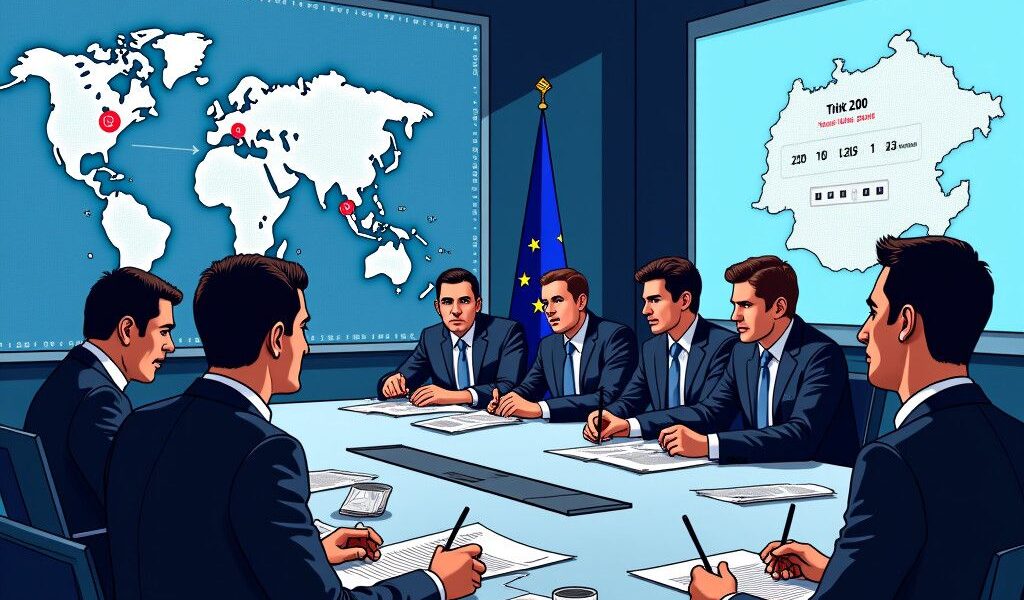EU Orders TikTok to Freeze Election-Related Data in Romania
In a significant move to ensure the integrity of electoral processes, the European Union has mandated TikTok to freeze any election-related data tied to the upcoming Romanian elections. This directive, aimed at curbing the potential influence of disinformation during a critical political period, underscores the growing concerns around social media platforms and their impact on democracy.
The backdrop to this directive is Romania’s elections, characterized by a highly polarized political landscape. Numerous reports indicate that TikTok, with its sprawling reach, has become a focal point for campaign messaging and citizen engagement. This has raised alarms among EU regulators, particularly regarding how the platform manages user data and its potential role in disseminating misleading information.
Recent studies highlight that young voters, especially those between the ages of 18 and 24, are increasingly turning to social media for news and political information. According to a 2023 survey conducted by the European Commission, 72% of young Romanians claimed to use social media platforms extensively to engage with political content. TikTok, known for its short, engaging video format, has become an attractive medium for political messaging.
Understanding the gravity of this shift, EU authorities are fortifying their regulatory approach. The European Commission’s concerns aren’t just about data management; they extend to the broader implications of social media on the democratic process. The directive comes as part of the EU’s Digital Services Act, which aims to increase accountability for tech giants and enforce stricter data protection measures.
What does this mean for TikTok? The platform is now required to implement immediate measures to prevent any data related to the elections from being processed or used for algorithmic adjustments. In practical terms, this could affect how political ads are targeted. For instance, if a campaign had planned to utilize insights derived from TikTok user behavior during the election period, that strategy may need to be revised or entirely scrapped.
Moreover, the EU’s insistence on transparency is notable. TikTok will need to provide regular reports on compliance activities and the specific measures taken to protect election-related data. This oversight aims to ensure that political entities are unable to exploit user data for electoral advantage, thus fostering a more equitable electoral environment.
In response to these demands, TikTok has stated that it is committed to collaborating with regulatory bodies to adhere to local laws and regulations. However, the platform’s commitment will be tested in a real-world scenario as the Romanian elections approach. Critics argue that the effectiveness of such directives often depends on enforcement. For instance, what repercussions might TikTok face if it fails to comply? The EU has maintained that penalties could range from substantial fines to more severe sanctions, though the implementation of such actions can be complex.
The implications extend beyond TikTok and Romania. This situation could serve as a precedent for how the EU handles similar scenarios in other member states, signaling a tougher stance on political advertising across social media platforms. As we witness a growing trend where social media shapes political discourse, the EU’s approach may influence governance models globally.
Another significant consideration is the potential response from other social media platforms. If TikTok is singled out for scrutiny, platforms like Facebook, Instagram, and Twitter might anticipate increased regulatory attention regarding their election-related practices. This could result in a broader push for reform across the digital landscape, where all platforms must adopt measures to protect user data, particularly during sensitive political times.
Ultimately, the EU’s directive to TikTok pinpoints a turning point in the convergence of social media and political activity. As social media remains integral in shaping public opinion and engaging younger voters, ensuring transparent and responsible practices is critical for democracy. The consequences of this order will not just define TikTok’s operational landscape but will also inform future regulatory frameworks governing digital interactions during elections.
The Romanian elections thus stand as a vital test case, evaluating not only TikTok’s compliance with the EU’s directives but also the resilience of European democracy in the face of evolving digital challenges.








